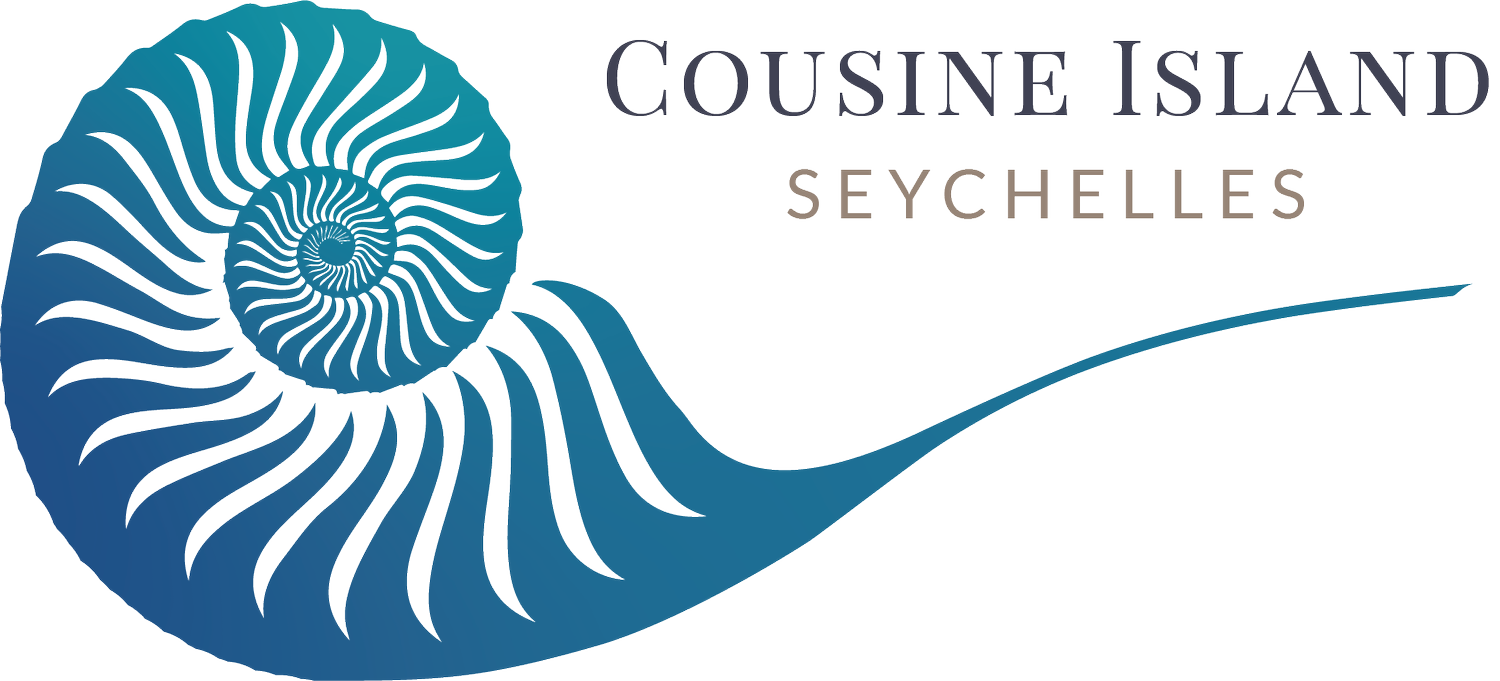
مدونتنا
مجلة جزيرة كوزين آيلاند
اكتشف الحياة البرية الفريدة من نوعها واستكشف ثقافة الجزيرة وانضم إلى فريق الحفاظ على البيئة في سعيهم اليومي لاستعادة وحماية النظم البيئية الفريدة لأرخبيل سيشيل. كل ذلك في أكثر الجزر الخاصة تميزاً في العالم.
التصفية حسب الفئة
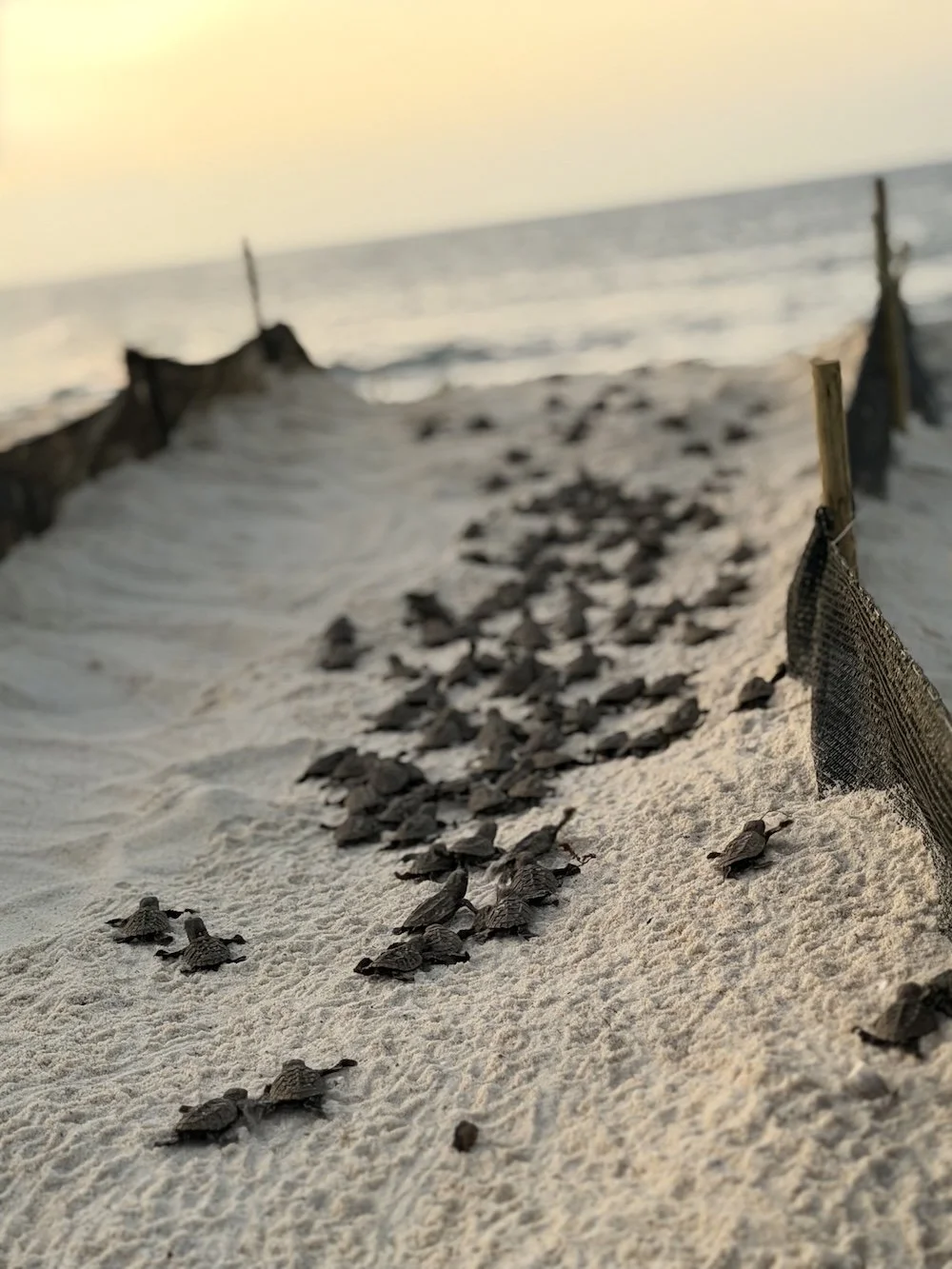
معجزة شهر فبراير: مشاهدة صغار السلاحف الصقرية في جزيرة كوزين
يحول شهر فبراير جزيرة كوزين إلى مسرح لأحد أكثر المشاهد الطبيعية إثارةً: ظهور صغار السلاحف الصقرية المهددة بالانقراض. بعد ثلاثين عاماً من جهود الحفاظ على هذه السلاحف، ساعدت أكثر من 200,000 من صغار السلاحف على الوصول إلى البحر، ويشهد الضيوف معجزة لا توفرها سوى أماكن قليلة على وجه الأرض.
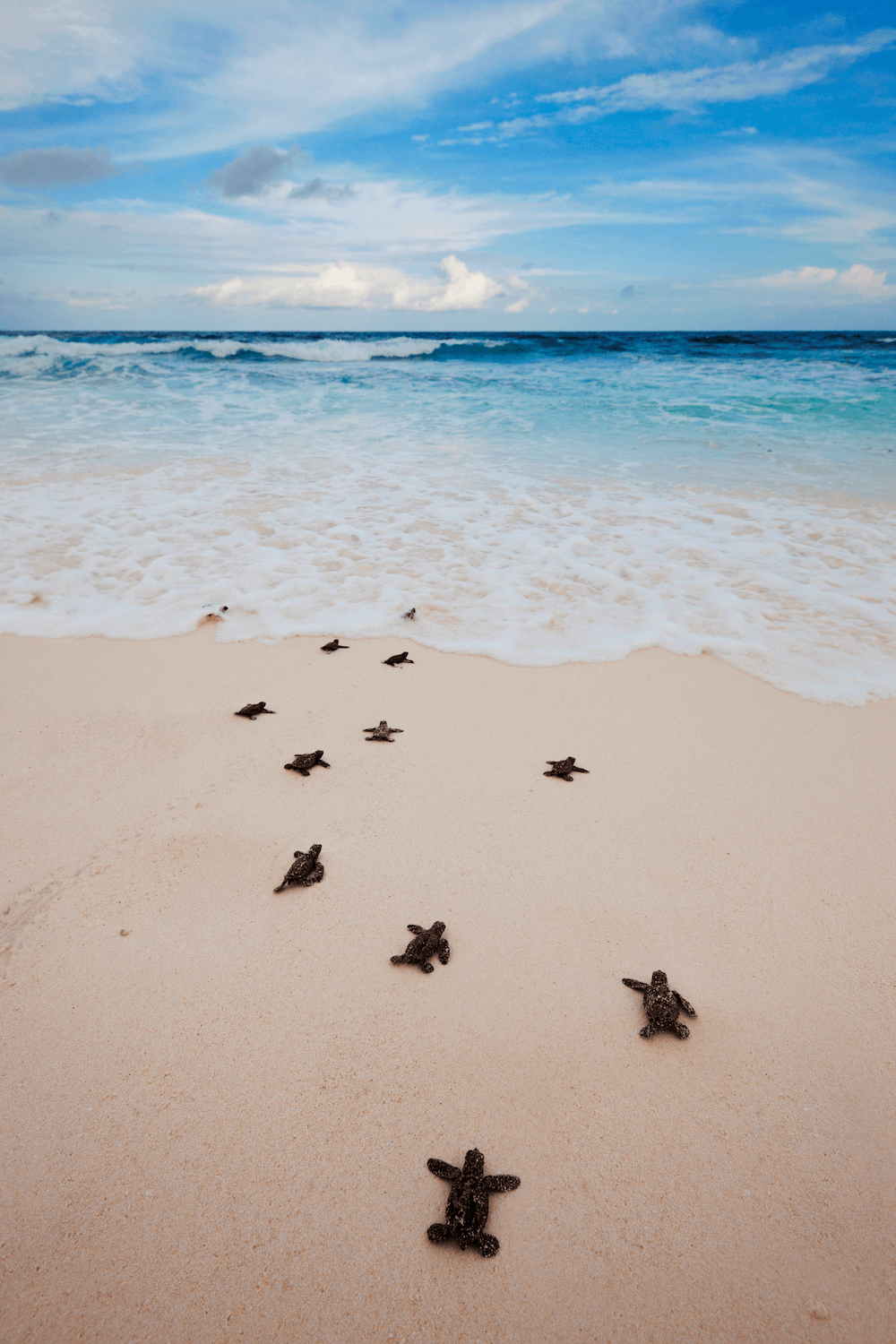
آثار أقدام صغيرة، رحلة عملاقة: مشهد فقس الصغار في شهر يناير على جزيرة كوزين
شاهد معجزة فقس صغار السلاحف البحرية في جزيرة كوزين في شهر يناير. تبدأ رحلة البقاء على قيد الحياة على شواطئنا، وأنت مدعو لمشاهدتها.

التقويم البيئي لشهر ديسمبر: مشاهدة الإيقاعات القديمة لتعشيش السلاحف
في شهر ديسمبر على جزيرة كوزين، تهطل الأمطار لتنعش الغابة وتعود السلاحف الصقرية لتعشش على شواطئها. ينضم الضيوف إلى تنبيهات الحفاظ على البيئة لمشاهدة التعشيش أو الفقس، ويبحثون في الأفق عن الدلافين والأسماك المفلطحة، ويبدأون العام الجديد بزراعة أشجار محلية. لا يمكن ضمان مشاهدة هذه الكائنات، مما يجعل كل لقاء معها ذكرى لا تُنسى.

السباحة مع العمالقة اللطفاء: موسم أسماك قرش الحوت في جزيرة كوزين
استمتع بلقاء هادئ مع أكبر الأسماك في العالم في جزيرة كوزين. من سبتمبر إلى نوفمبر تزين أسماك قرش الحوت مياه سيشيل، وتوفر هذه الجزيرة الخاصة لقاءات محترمة ومصادفات السلاحف والمشي في الطبيعة بصحبة مرشدين وباقات فاخرة. استرخِ في موسم الأعياد واكتشف الرفاهية التي تحافظ على البيئة وسط الشواطئ البكر.

رفاهيتك، إرثك: دليل الضيف للسفر منخفض التأثير في جزيرة كوزين
تُظهر جزيرة كوزين أن التفرد والاستدامة يمكن أن يتعايشا معاً. وبفضل الفيلات المحدودة والتجارب المصحوبة بمرشدين وفلسفة الحفاظ على البيئة أولاً، تتيح الجزيرة للضيوف الاستمتاع بالخصوصية الحقيقية مع الحفاظ على نظامها البيئي الحساس.
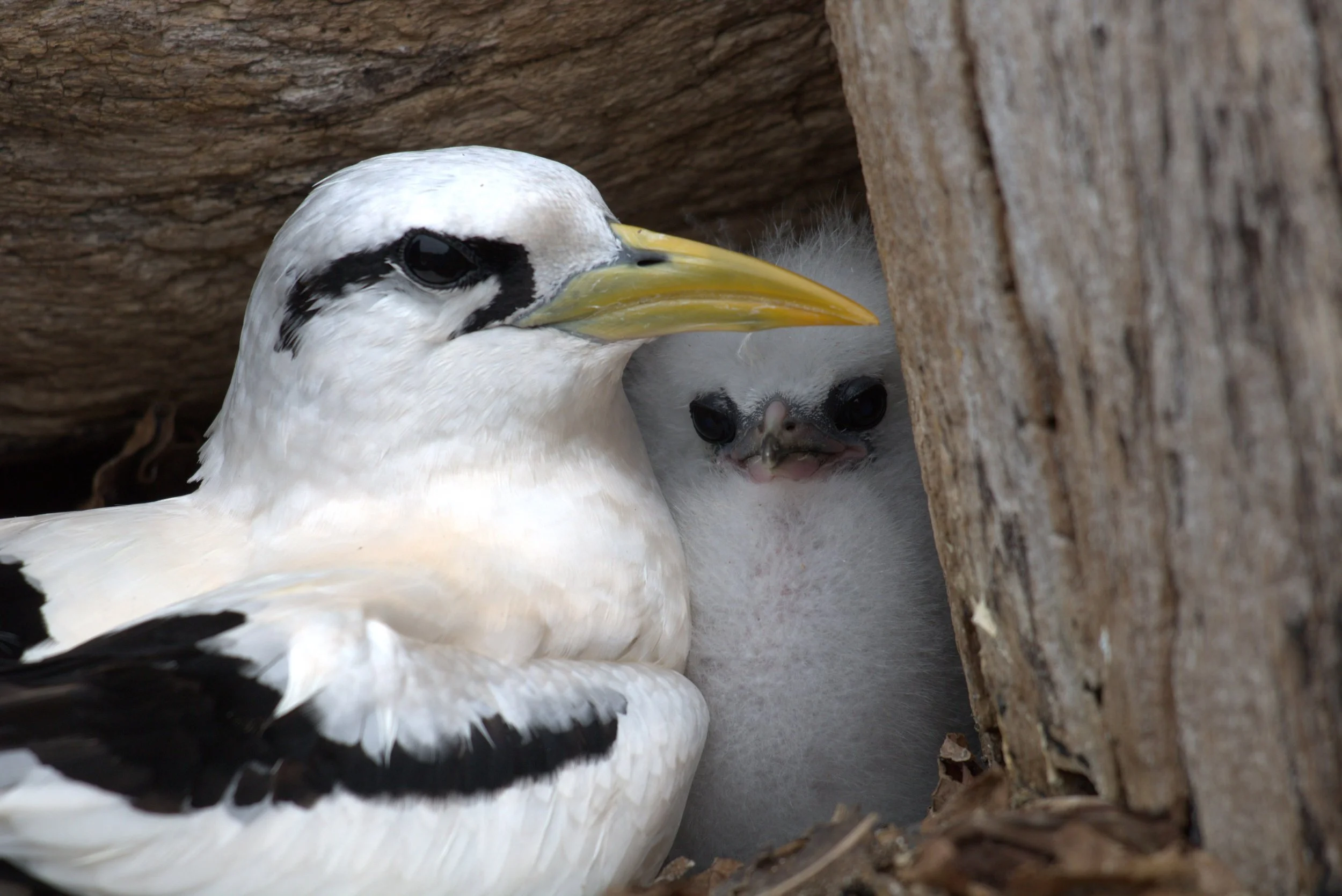
الطيور البحرية لشهر أكتوبر: طيور الخرشنة الجنية والطيور الاستوائية بيضاء الذيل في بيئتها
يصادف شهر أكتوبر/تشرين الأول بداية تكاثر الطيور البحرية في جزيرة كوزين، عندما تقوم طيور الخرشنة الجنية والطيور المدارية بيضاء الذيل برحلات التودد وتعشش دون إزعاج في إحدى الجزر الخاصة القليلة الخالية من الحيوانات المفترسة في سيشيل.
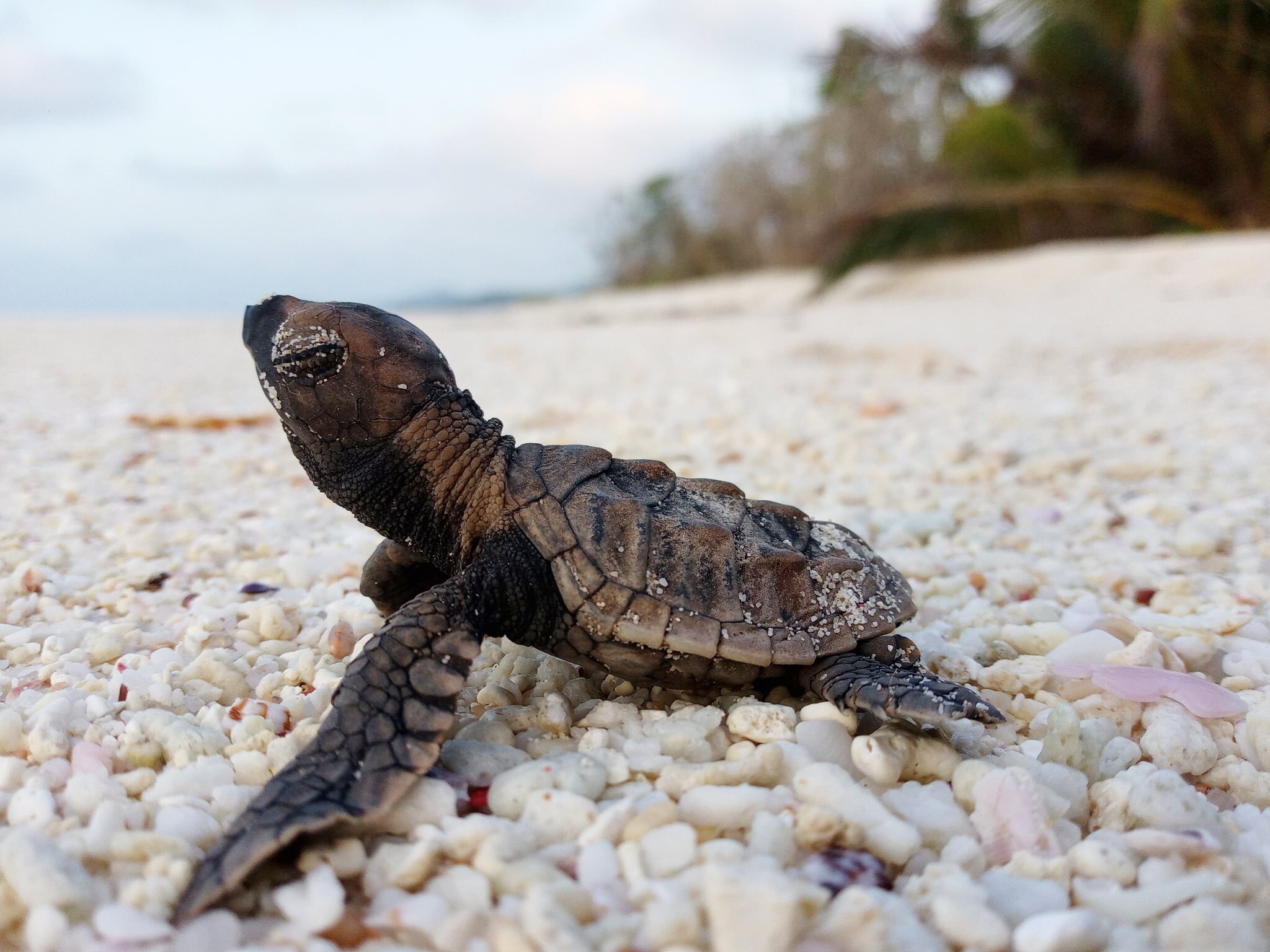
أكتوبر في كوزين: سلاحف منقار الصقر وسحر الحياة الجديدة
يصادف شهر أكتوبر بداية موسم تعشيش سلاحف منقار الصقر في جزيرة كوزين - وهي تجربة نادرة وحميمية حيث يشهد المسافرون المترفون أكثر من 18,000 من صغار السلاحف تبدأ رحلتها إلى البحر.
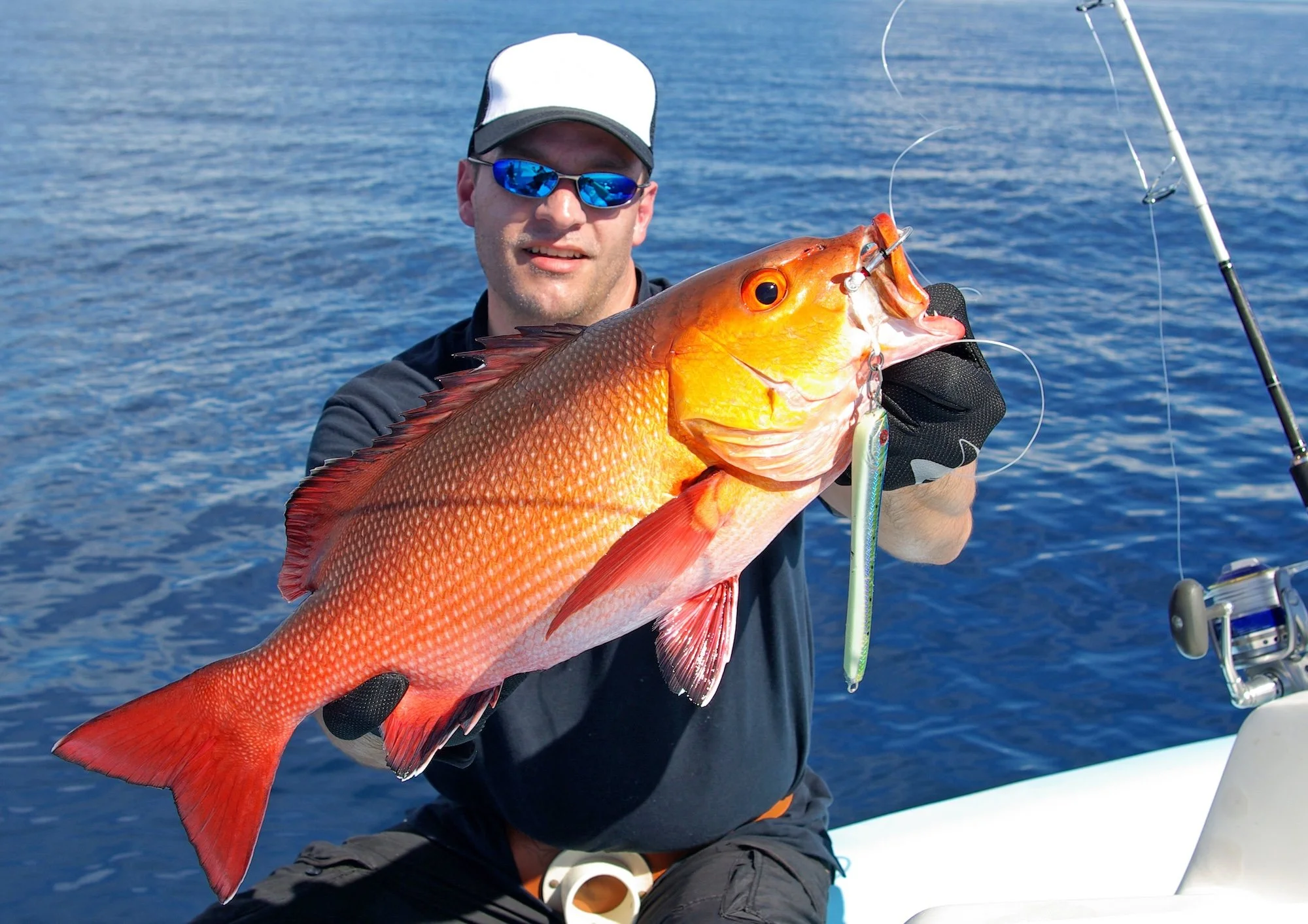
مغامرات الصيد في سيشيل: من الشاطئ إلى أعماق البحار
سيشيل ليست مجرد أرخبيل مثالي للبطاقات البريدية - إنها ثقافة حية حيث يرسخ صيد الأسماك الحياة اليومية والمطبخ. يستكشف هذا الدليل صيد الأسماك على الشواطئ على شواطئ جزيرة كوزين ومراكب الصيد في أعماق البحار التي تصطاد أسماك التونة والدورادو والواهو. كما يشرح كيف يشارك الضيوف في تناول الطعام المستدام من الصيد إلى المائدة ويسلط الضوء على الأنماط الموسمية وقواعد الحفظ التي تحافظ على حيوية النظم البيئية البحرية في سيشيل.
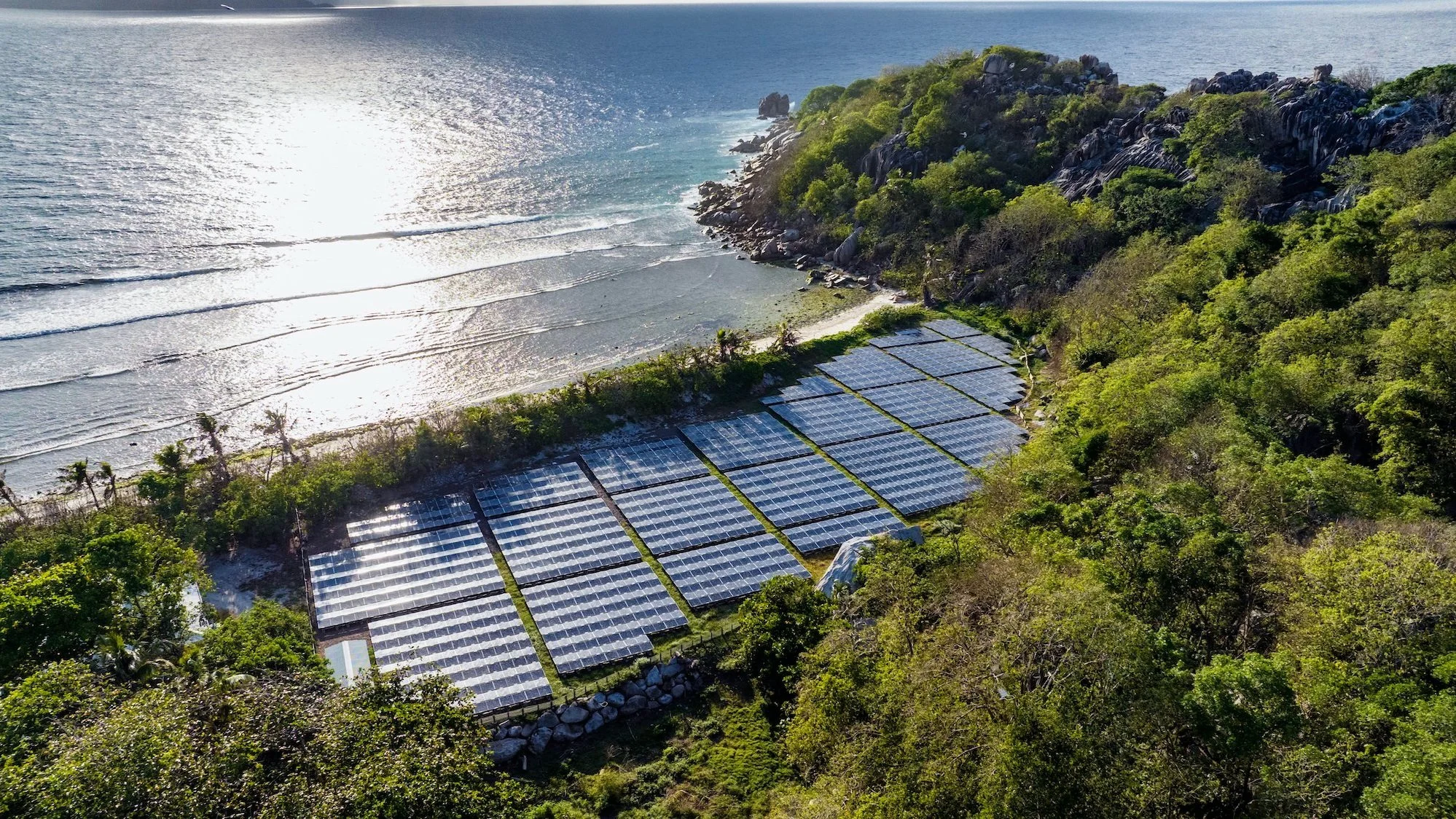
كيف يمكن لجزيرة خاصة أن توفر الطاقة لجزيرة خاصة مستدامة؟ جزيرة كوزين توضح الطريق
تقدم جزيرة كوزين أكثر من الشواطئ البكر. فبعد أن كانت مستغلة، أصبحت الآن تعمل بالطاقة الشمسية، وتحصد مياه الأمطار، وتعيد تدوير النفايات وتستعيد الشعاب المرجانية. وقد أكسب هذا المزيج من الاستدامة والرفاهية الجزيرة جوائز دولية، مما يثبت أن الرفاهية الخاصة يمكن أن تكون قوة للحفاظ على البيئة.
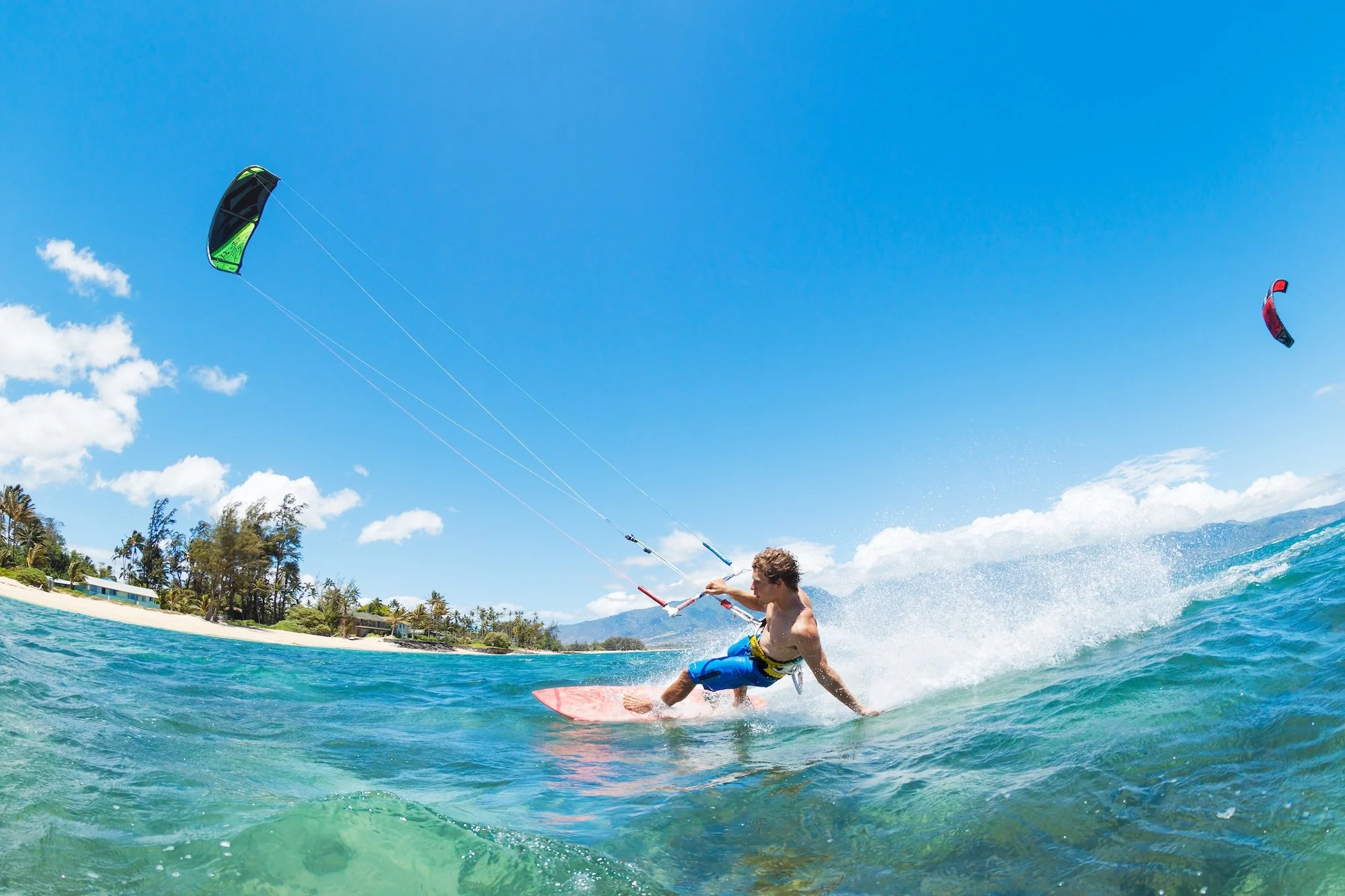
هل أبحرت من قبل مع الرياح التجارية؟ اكتشف مغامرات شهر سبتمبر في المحيط في جزيرة كوزين
يحوّل شهر سبتمبر جزيرة كوزين إلى ملعب في المحيط. تبعث الرياح التجارية النابضة بالحياة في رحلات القوارب وجلسات ركوب الأمواج الشراعية ورحلات التجديف، بينما تذكّر السلاحف التي تعشش في أعشاشها والطيور التي تتكاثر الضيوف بأن كل مغامرة تدعم قصة أكبر للحفاظ على البيئة.

مشاهدة الحياة البرية في يونيو: جنة عالم الطبيعة (مع الإقامة الرئاسية)
شهر يونيو هو وقت ساحر لمحبي الحياة البرية. شاهد سلاحف ألدابرا وسلاحف سيشيل والسلاحف التي تعشش في أعشاشها - كل ذلك من جناحك الرئاسي الخاص في جزيرة كوزين.

هل جزيرة كوزين هي أفضل مكان لتجربة موسم تعشيش السلاحف؟
استمتع بموسم تعشيش السلاحف في جزيرة كوزين في شهر يونيو. انضموا إلى الدوريات وشاهدوا صغار السلاحف واستكشفوا باقات الرفاهية الأخلاقية خلال اليوم العالمي للسلاحف البحرية.

احتفل باليوم العالمي للمحيطات بأسلوب أنيق في جزيرة كوزين
احتفل باليوم العالمي للمحيطات في جزيرة كوزين مع الغوص والحفاظ على البيئة البحرية والباقات البيئية الفاخرة. استكشف عروض "إحياء وتجديد النشاط" اليوم.
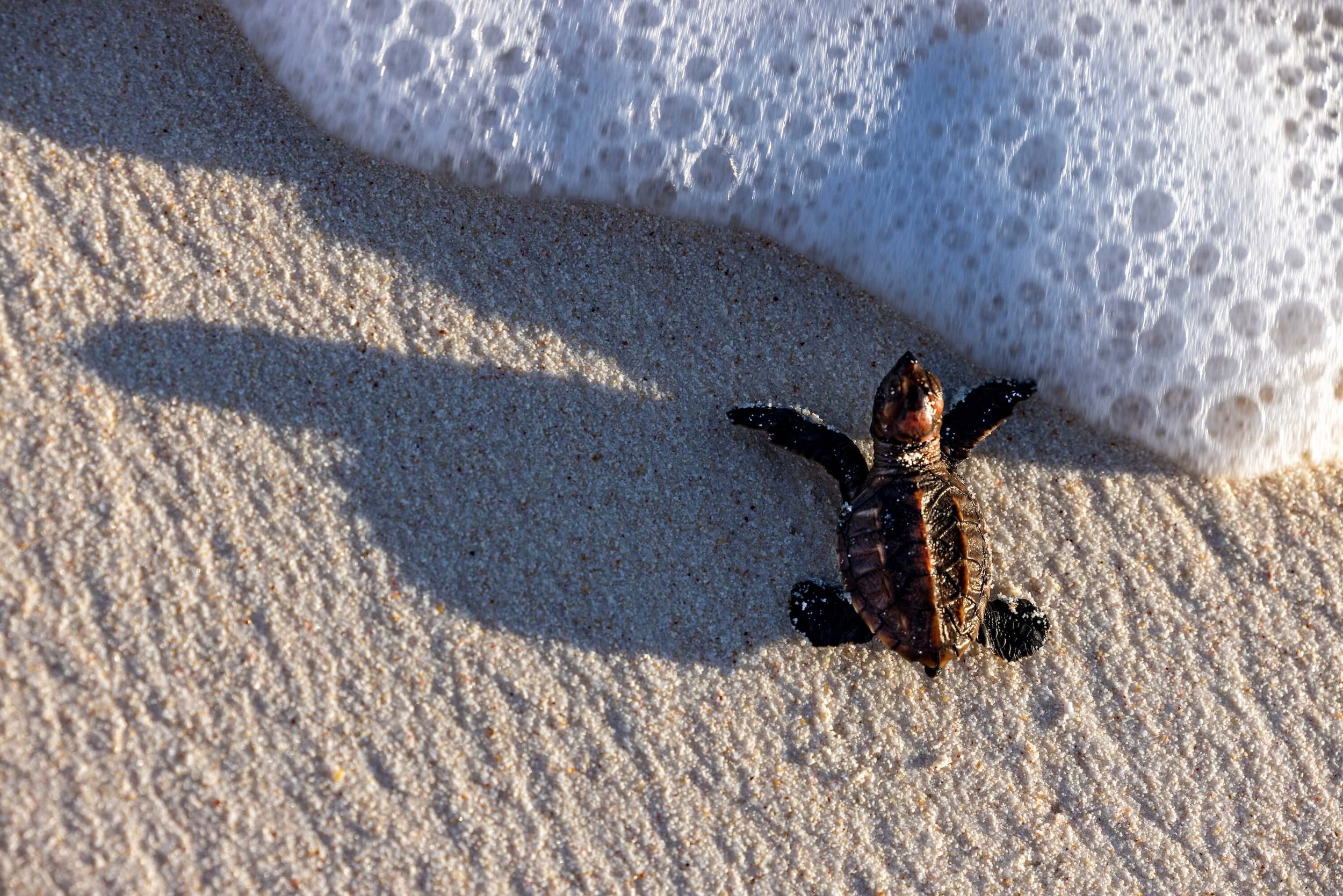
شاهد رحلة صغار السلاحف البحرية التي تفقس في جزيرة كوزين
استمتع برهبة صغار السلاحف البحرية التي تفقس في أول رحلة لها إلى المحيط، وهي لحظة أصبحت ممكنة بفضل جهود الحفاظ على البيئة المتفانية.

الفخامة المستدامة: إعادة تعريف الحياة الصديقة للبيئة في جزيرة كوزين
في جزيرة كوزين، تلتقي الفخامة مع الاستدامة، حيث تقدم للنزلاء تجربة لا تُنسى مع الحفاظ على جمال الجزيرة البكر للأجيال القادمة.
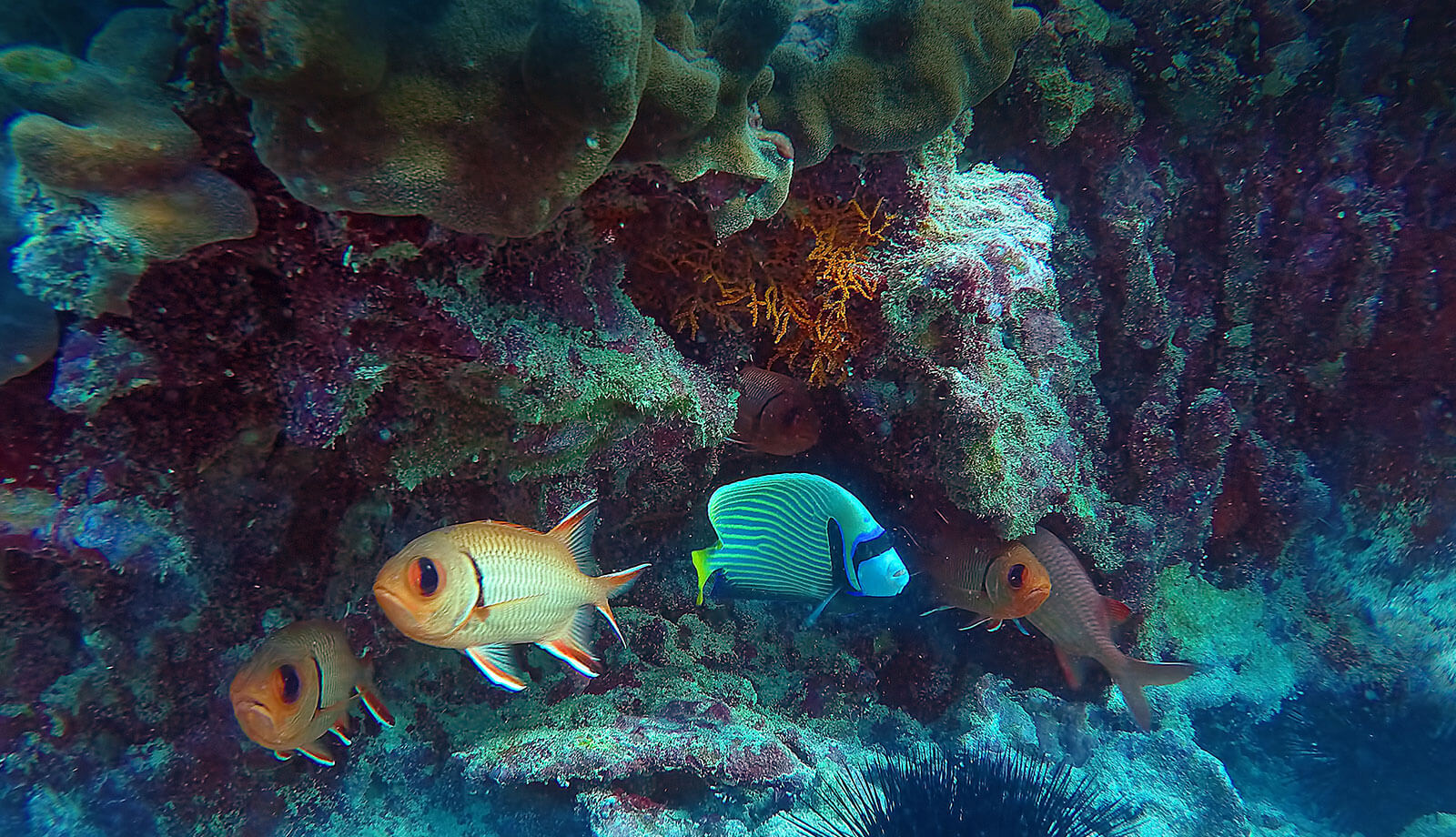
الحفاظ على حياتنا البحرية الفريدة والمتنوعة
إن حماية الحياة البحرية النابضة بالحياة في جزيرة كوزين من الشعاب المرجانية إلى الثدييات البحرية يضمن نظاماً بيئياً مزدهراً للأجيال القادمة.

تعرّف على الأخطبوط الغامض
استكشف سحر الأخطبوط في جزيرة كوزين، حيث يزدهر أساتذة التمويه هؤلاء، مما يضمن صحة نظامنا البيئي البحري وتنوعه.

تعرف على خفاش الفاكهة في سيشيل الثعالب الطائرة في جزيرة كوزين
اكتشف الدور الحيوي لخفافيش الفاكهة في التلقيح ونثر البذور في جزيرة كوزين، مما يضمن لنا تنوعاً بيولوجياً ثرياً وتوازناً بيئياً.
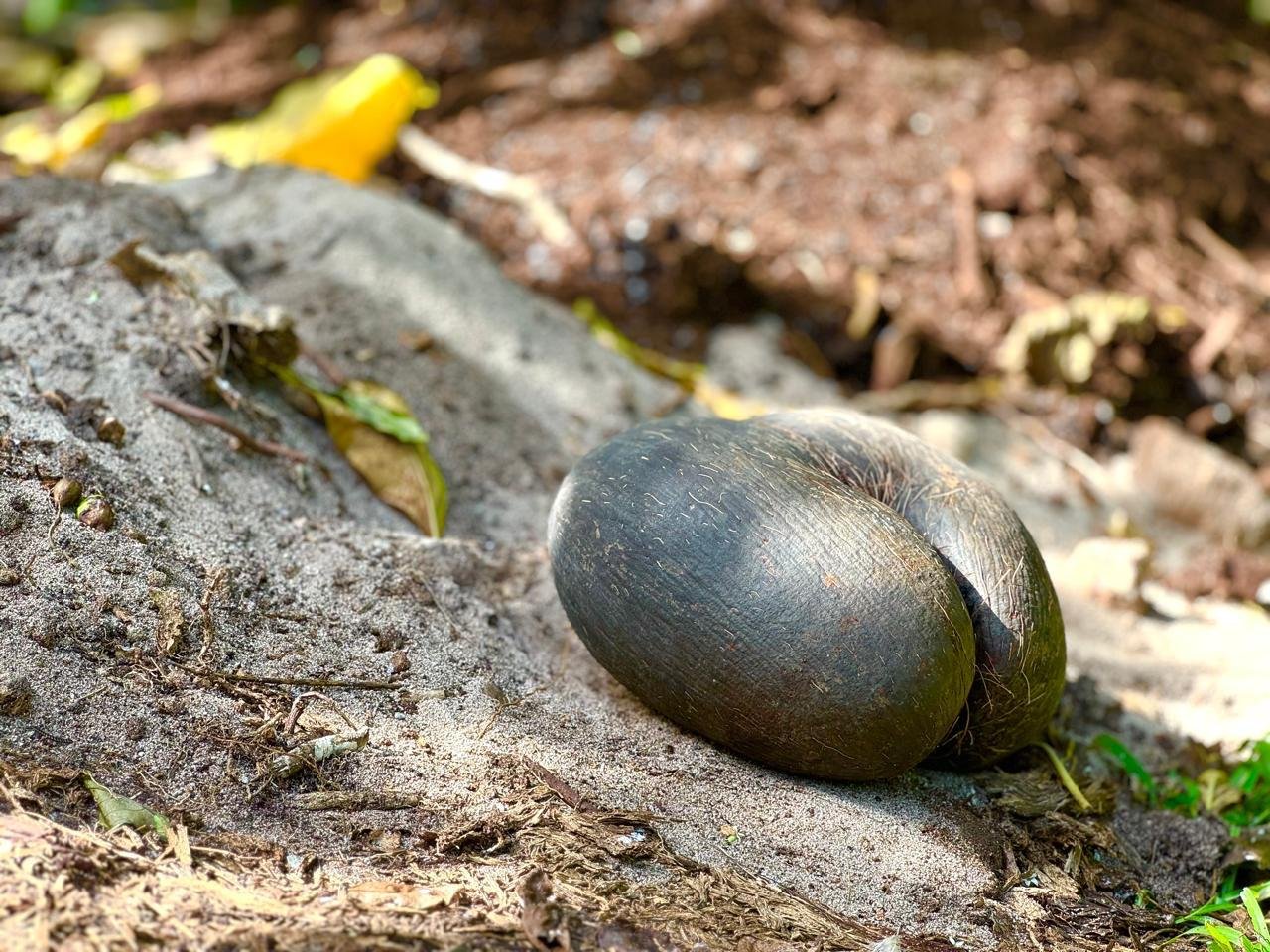
تقديم كوكو دي مير
جرب أعجوبة جوز الكوكو دي مير، أكبر جوزة في العالم، وأساطير تكاثرها الفريدة، حيث تتعاون جزيرة كوزين مع مؤسسة جزيرة سيشيل للحفاظ على هذا النوع الاستثنائي وتعزيز التنوع البيولوجي في جزيرتنا.
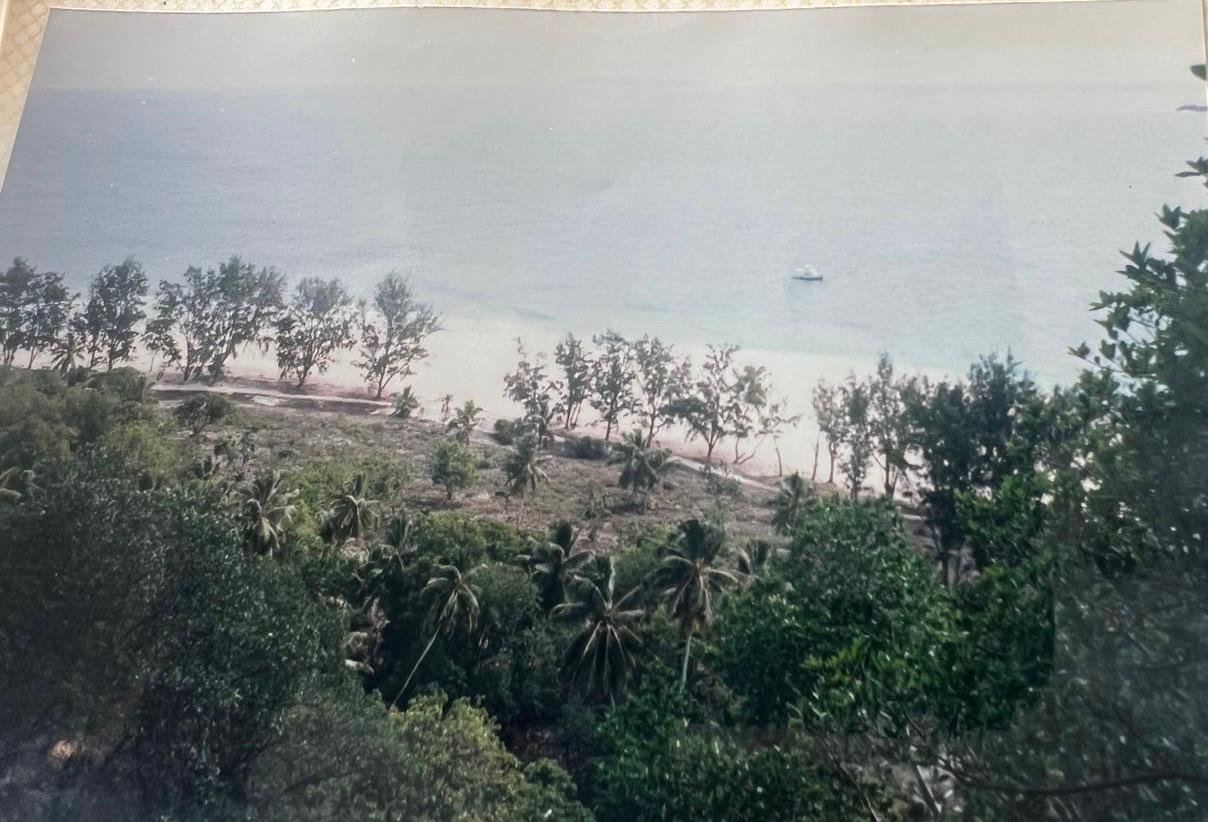
تاريخ جزيرة كوزين، جوهرة جزر سيشيل
وقد قام المالك الحالي السيد م. ف. كيلي وعائلته بإعادة تأهيل الجزيرة وحمايتها من حافة اليأس بسبب الاستغلال، وقد تم إعادة تأهيلها وحمايتها لعقود من الزمن.
